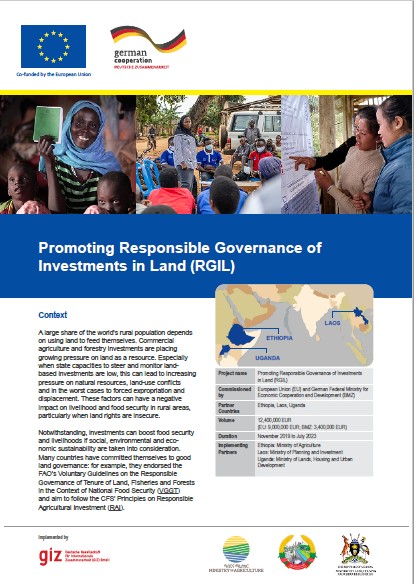Evidence of women’s participation in value chains is greater on the production side, but scanty in downstream nodes, pointing to women being relegated to unprofitable activities. The consequence is suboptimal value chain performance with wide gender gaps in productivity, income, household food…
Agricultural expansion-led deforestation in Uganda is one of the highest of the world. At the same time, internal migration patterns are strongly inter-linked with agricultural dynamics in the country, as migrants are involved in crop production activities and traditionally play important roles…
Recently, issues related to the (perceived) quality of inputs and technologies have been proposed as an important constraint to their adoption by smallholder farmers in low income countries. Taking maize seed embodying genetic gain as a case, we train random agro-dealers to test whether under-…
CONTEXT
Population pressure, land scarcity and encroachment of nature reserves are challenging sustainable intensification of agriculture in Uganda. One of the main staple crops in Uganda is East African Highland banana. Area expansion and improved management have enhanced the economic…
Estimating genetic gains is vital to optimize breeding programs for increased efficiency. Genetic gains should translate into productivity gains if returns to investments in breeding and impact are to be realized. The objective of this study was to estimate genetic gain for grain yield and key…
The manual is designed to assist the reader with information about potato value chain and its management in times of climate change. It is comprised of five chapters with coordinated content as summarized below. Chapter one gives some background and a contextual aspect of potato production in…
The manual is designed to assist the reader with information about sunflower value chain and its management in times of climate change. This manual takes the reader through a learning process on the importance, management, and benefits of sunflower crop. The different chapters describe the…
Sesame (locally known as simsim) production in Uganda is increasingly becoming popular because of its wide benefits. Sesame production is equally being affected by several factors including climate change. Climate change is associated with changing precipitation patterns, rising temperatures and…
The precipitous escalation of the security crisis in the eastern Democratic Republic of the Congo (DRC) risks reigniting interstate conflict in the Great Lakes region. The myriad actors and interests involved, however, often defy easy analysis. To help clarify what is driving the worsening…
As forest tenure reform is mainstreamed around the world, outcomes are increasingly determined by the institutions that are responsible for administering its operationalisation and translating policy into implementation. This global study examines state institutional contexts of tenure reform in…
This brochure provides an overview of the Gender Narrative of the Global Programme Responsible Land Policy (GPRLP) implemented by the German Development Cooperation <em>Gesellschaft für Internationale Zusammenarbeit (GIZ) GmbH</em>. It lays out the programme's vision, motivation…
The RGIL project is part of the Global Programme Responsible Land Policy (GPRLP) and is implemented in Ethiopia, Laos and Uganda. RGIL aims to ensure that investments in land are productive, contribute to sustainable land management and respect the rights and needs of local populations, in…





